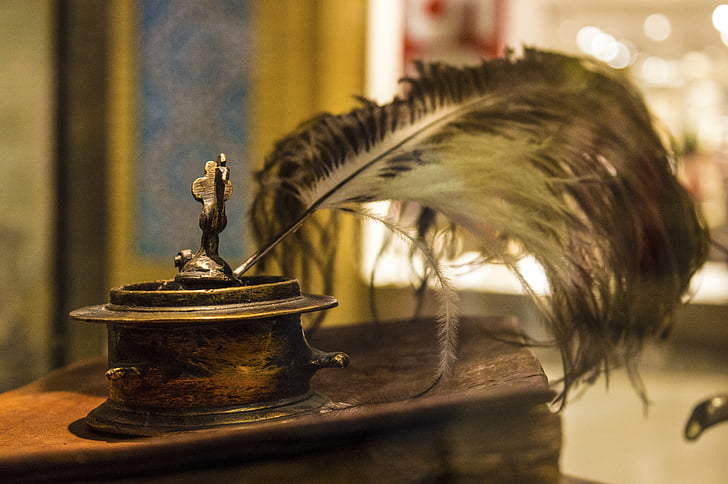The time is come I must departe
from thee, ah, famous Citie:
I never yet, to rue my smart,
did finde that thou hadst pitie,
Wherefore small cause ther is, that I
should greeve from thee to go:
But many Women foolyshly,
lyke me, and other moe.
It remains a common misconception amongst scholars and the general population alike that before the rise of the Second-Wave feminist movement in the late 1960s, women were passive participants in their patriarchal societies; women were to be seen — primarily to be put on show for the male gaze — and not heard. Yet, contrary to this assumption, women have constantly dissented against the gendered confines of their androcentric worlds throughout history. As the seminal historian of women’s history, Gerda Lerner, aptly encapsulates in her essay The Majority Finds Its Past: “Women have always been making history, living it and shaping it… [yet until the 1960s], historical writing ignored history and the female point of view.”
The women of early modern London — or London between the sixteenth and eighteenth centuries — are no exception to this phenomenon. While these women did remain largely subordinate in London society compared to their male counterparts, women, albeit chiefly white women, nevertheless dissented against their inferior position; many female early modern Londoners were anything but passive.
Writing was a key means through which women were granted the ability to dissent against the patriarchal society of early modern London. Specifically, the medium allowed women to showcase, explore, and subvert the traditional roles of their sex to a range of audiences, meaning that they were able to pose a major danger to the gendered social structures of early modern London. Further, writing granted women a means to reach beyond the household realm, a place where women, particularly middle-class women, were ultimately confined. Writing, then, allowed the women of early modern London a chance to project their voices — often little heard amongst their male-dominated society — into the public realm.
A prime case study of this idea is evident in the work of poet Isabella Whitney. Believed to be born in 1548, it is said that Whitney is the first recorded Englishwoman to have written secular poetry for publication. Although not born in London, Whitney was living and writing in England’s capital roughly the same time as the likes of William Shakespeare, John Donne, and Ben Johnson. Yet, unlike these much-remembered writers and playwrights, a lack of scholarly interest has meant that little is known about Whitney’s life and her work is rarely studied in classrooms.
Reading Whitney’s poetry is a testament to the power of early-modern female writers in their ‘will’ and determination to break into the male space of writing. A prime example of Whitney’s attempt at subverting the patriarchal nature of her social order appears in the poet’s 1573 work, ‘Wyll and Testament.’ Published within Whitney’s poetry volume, A Sweet Nosegay or Pleasant Posy, the poem ‘Wyll and Testament’ is written in the style of a legal will. In her ‘will,’ Whitney metaphorically grants early modern Londoners a portion of the “famous Citie,” simultaneously providing us with a rich social topography of the London of this time. Whitney powerfully takes ownership of the androcentric medium of writing itself in her metaphorical ‘wyll,’ a means that permits the poet to subvert women’s inferior position in society by objectifying the city of London itself. Further, Whitney’s use of the will form arguably poses the most danger to London’s social order; the poet claims ownership of the city, with the written word permitting the poet to metaphorically achieve what was largely impossible in her reality. Indeed, it was extremely rare for women of early modern London to own property, yet alone write a will that delegated their property and assets to others. Thus, Whitney’s metaphorical ownership of London as defined in her ‘will’ is in itself subversive.
As Whitney’s work attests, women did publish and translate written works for distribution amongst the hectic street stalls of early modern London’s print market, a place where women could tune into popular genres to generate a profit from their writing. Yet, women did face considerable challenges in establishing themselves as writers during this time. Namely, several prohibitions on female authorship existed to confine women to their private role as mothers and housewives. Unfortunately, the specificities of these prohibitions are now lost to history. Nevertheless, women’s general lack of education, the gendered nature of writing being a male right, and, as Wendy Wall writes in her essay, Isabella Whitney and the Female Legacy, “the identification of silence as a feminine ideal,” enhanced the challenges faced by those female writers of early modern London.
Despite these challenges, Whitney’s poem is extremely significant for us to study today as it highlights the overall power of the written medium in granting individuals throughout history the ability to leave a legacy. While a latecomer to classroom discourses and scholarly study, Whitney’s poem presents a rich view into the history of early modern London and its diverse and agentic inhabitants. Ultimately, Whitney’s poem illuminates how writing can enable one to leave a legacy, simultaneously granting us insight into the lives of marginalised groups, particularly women, throughout history. Perhaps this was the poet’s greatest wyll.





